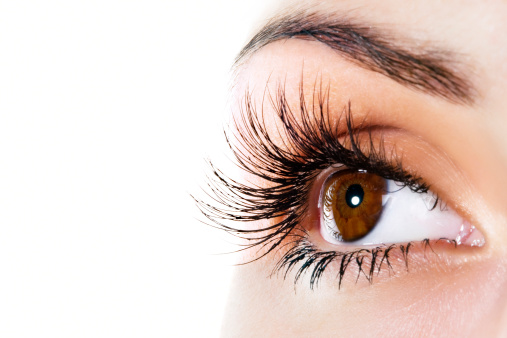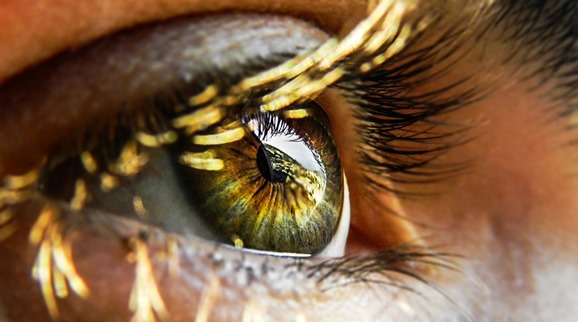A Caution About Eyelash Extensions

Using Genetics to Predict KC
November 8, 2021
CXL Redo: Retreatment After Crosslinking
December 10, 2021Originally published in NKCF Update (May 2020)
Eyelash extensions have become an increasingly popular cosmetic trend. They appear more natural and last longer than other forms of false eyelashes. For individuals with KC, there is an appeal to having long, lovely lashes without having to deal with a makeup mirror.
While these semi-permanent lashes may be beautiful, they can pose a potential threat to your eye health – eyelash extensions made of silk, mink, nylon or other synthetics are glued to natural lashes individually. Because of the proximity to the eye, artificial extensions may cause certain kinds of ocular disorders.
The primary perpetrator seems to be the glue used to adhere the synthetic lashes to the natural lashes or the solvents used to remove them. The glue may not have direct contact with the eye, but body temperature may cause changes to the adhesive. The chemical formaldehyde is a byproduct of the materials in the adhesive and can be the source of serious eye irritation. Dr. Karen Lee, OD, a contact lens expert at the University of Houston College of Optometry agrees, “I do not recommend eyelash extensions for my patients with KC because the formaldehyde in the glue can be toxic to the ocular surface.”
A published report from Japan examined the complaints of 107 women whose eye irritation resulted from eyelash extensions. Some of the symptoms included keratoconjunctivitis (inflammation of the cornea and conjunctiva), blepharitis, and conjunctival erosion. Allergic reactions, contact lens discomfort, and dry eye symptoms have been reported as a result of eyelash extensions.
If you intend to use extensions, it is important to be aware of the materials your eyelash technician is using, and to ensure measures are taken to maintain proper hygiene. Bacteria can exist on these artificial lashes and find its way into your eye. Dr. Lee notes this is another concern, “These extensions also promote poor eyelid hygiene as patients are often afraid to clean them and this causes the lashes to fall out prematurely.”
If you find that your eyes are red, teary, itchy, sensitive to light or painful, contact your eye doctor immediately, and if you have had eyelash extensions recently put on or taken off, share this information with your doctor.

Dr. Karen Lee, OD, FAAO, FSLS is a graduate of the Indiana University College of Optometry and completed a residency in cornea and contact lens. She is Assistant Professor at the University of Houston College of Optometry and currently serves as President of the Scleral Lens Education Society.



